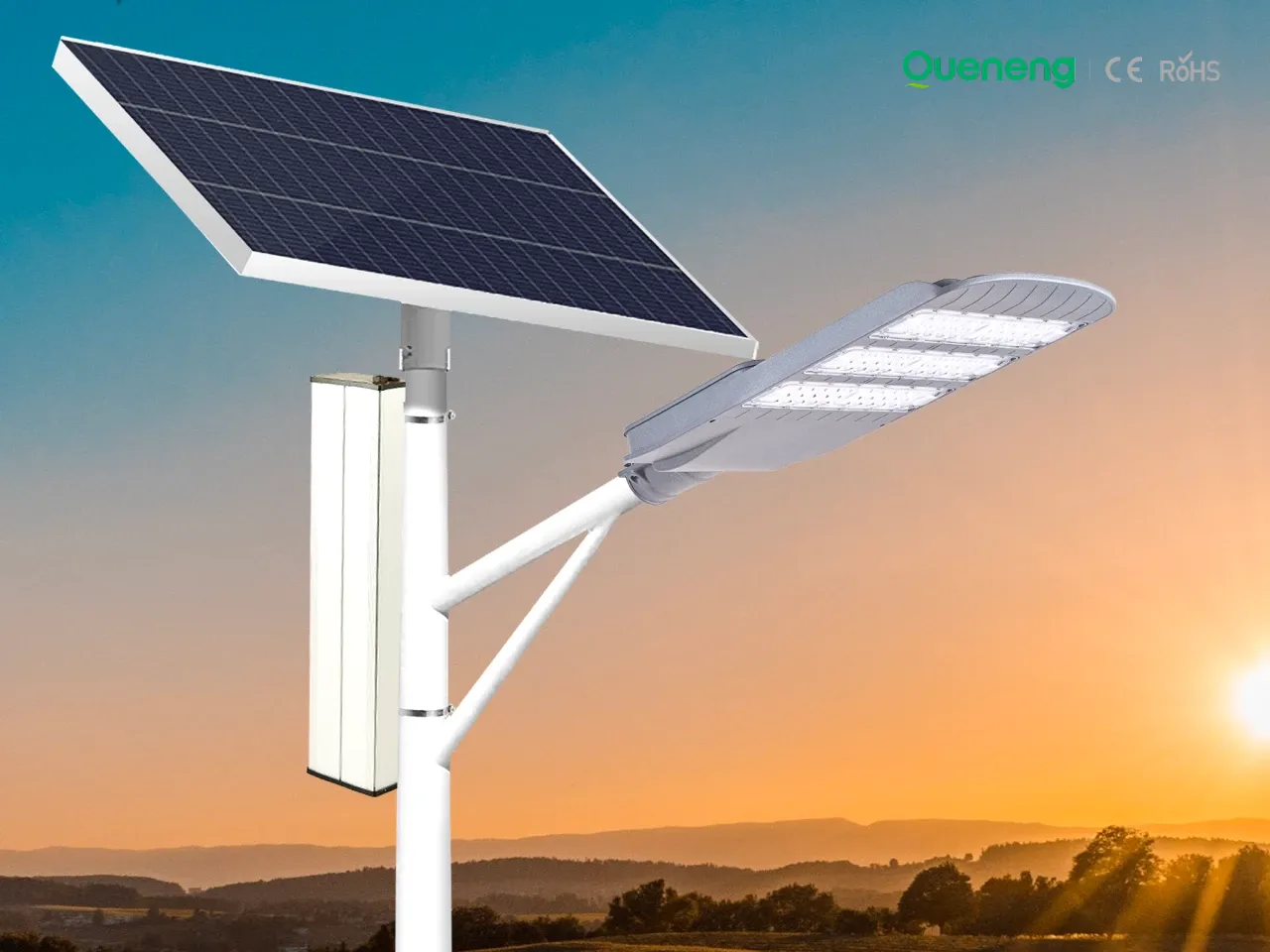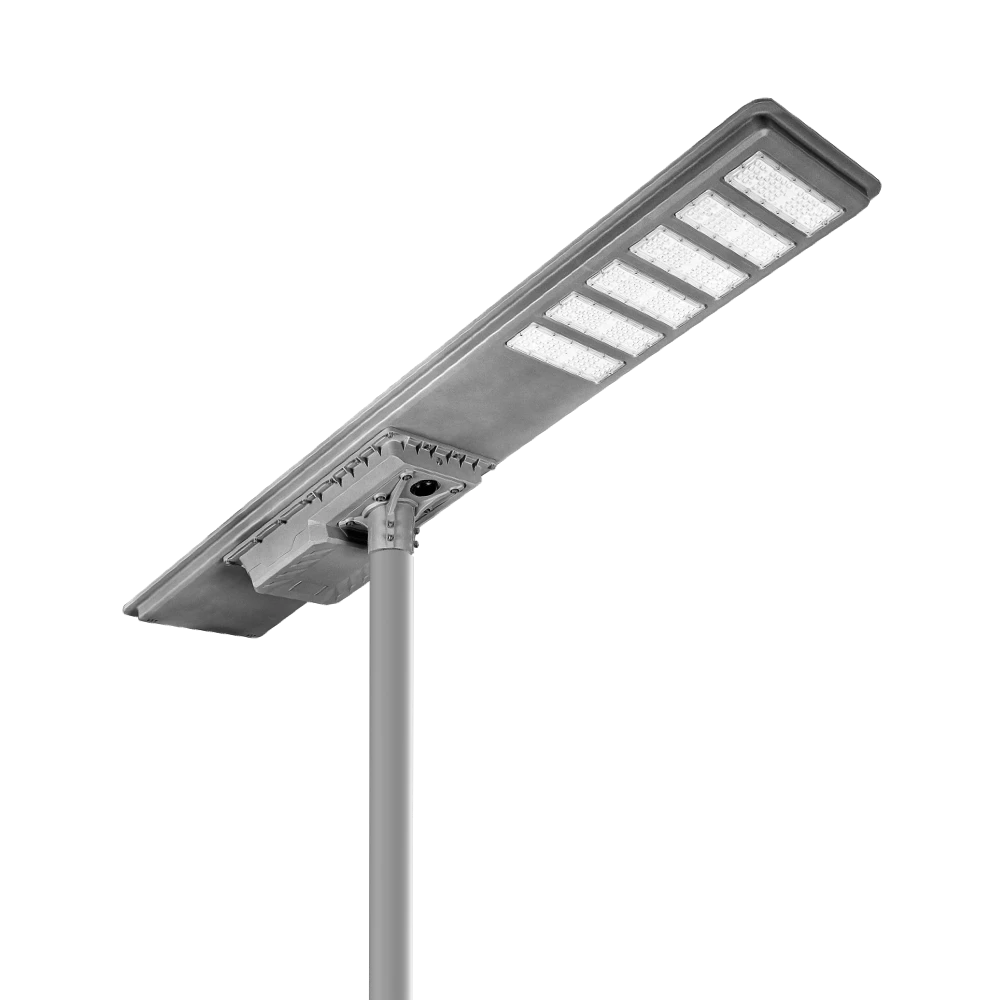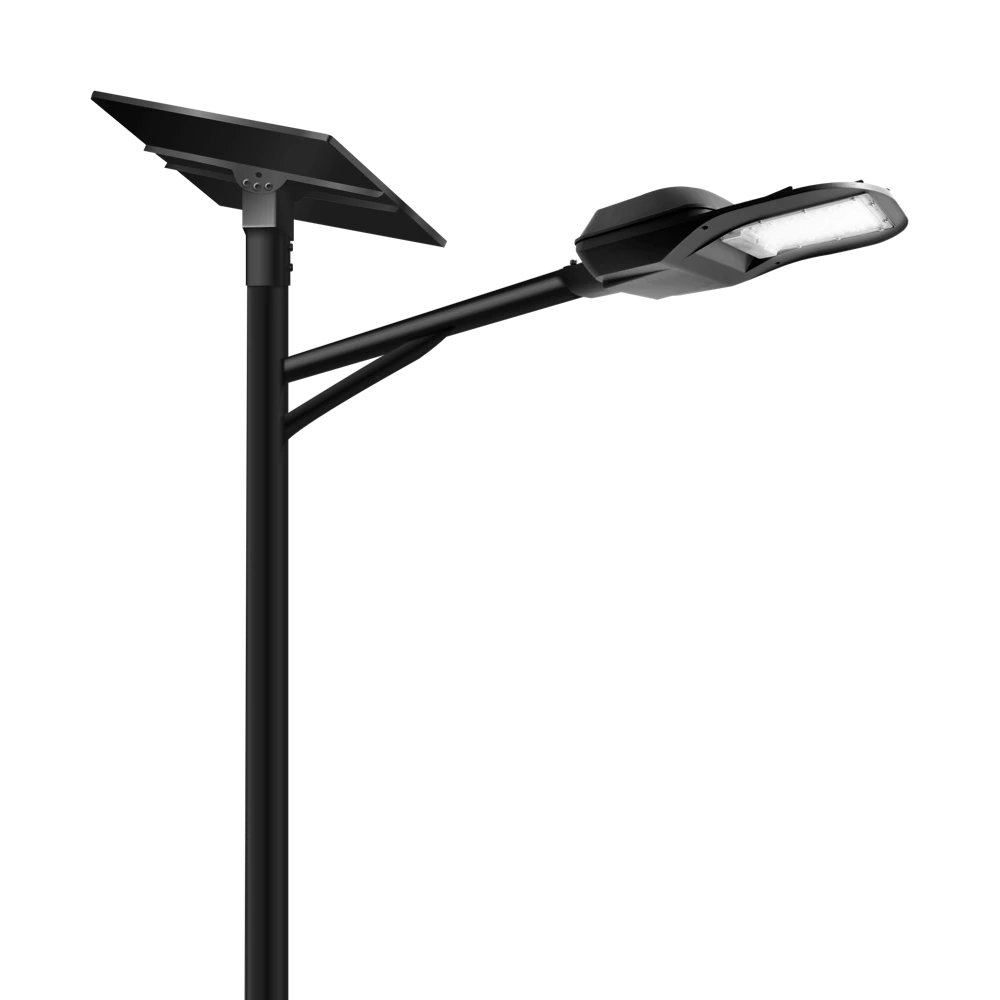OEM all-in-one solar lights | Insights by Quenenglighting
Navigating the OEM All-in-One Solar Light Market: A Buyer's Guide
The global solar street light market is booming, projected to reach over USD 15 billion by 2030, driven by a global push for sustainable infrastructure and off-grid solutions. For businesses looking to integrate solar lighting into their projects or product lines, sourcing OEM (Original Equipment Manufacturer) all-in-one solar lights presents a unique opportunity for cost-efficiency, customization, and scalability. However, navigating this specialized market requires a deep understanding of key factors. Based on common buyer inquiries and industry trends, here are the top 5 questions buyers frequently ask, along with expert insights.
What are the key technical specifications to look for when evaluating OEM all-in-one solar lights?
When procuring OEM all-in-one solar lights, a thorough understanding of specifications is paramount to ensure performance and longevity. Focus on these critical parameters:
- Solar Panel Efficiency: Look for monocrystalline silicon panels, which offer higher efficiency, typically ranging from 20% to 22% or even higher (some High Quality modules hit 24%+) in a compact footprint. This ensures optimal energy harvesting even in limited sunlight.
- Battery Technology & Capacity: Lithium Iron Phosphate (LiFePO4) batteries are the industry standard due to their exceptional cycle life (2,000 to 4,000 cycles to 80% DoD, translating to 8-10+ years lifespan), safety, and stable performance across various temperatures. Ensure the battery capacity (measured in Wh or Ah) provides sufficient autonomy (e.g., 3-5 nights of backup) for your target region's climate.
- LED Efficiency & Luminous Flux: Modern LED chips (e.g., from Philips Lumileds, Cree, Bridgelux) should deliver high luminous efficacy, typically exceeding 150-170 lumens per watt. The total luminous flux (lumens) should match the required illumination level for your application (e.g., a 60W light might produce 9000-10200 lumens).
- Charge Controller: An MPPT (Maximum Power Point Tracking) charge controller is superior to PWM (Pulse Width Modulation). MPPT can increase energy harvest by 10-30%, especially in fluctuating light conditions, optimizing battery charging and extending light runtime.
- IP Rating: For outdoor applications, a minimum IP65 rating is essential, indicating protection against dust ingress and water jets. For harsher environments, IP66 or IP67 offers greater resistance.
How can I ensure the quality and reliability of OEM all-in-one solar lights from a manufacturer?
Quality assurance is crucial for long-term project success. Demand transparency and evidence of robust quality control processes:
- Certifications: Verify international certifications such as CE, RoHS, FCC for product compliance, and ISO 9001 for the manufacturer's quality management system. UL certification might be required for specific markets.
- Testing Protocols: Inquire about their in-house testing procedures. This should include aging tests (e.g., 24-48 hours continuous operation), waterproof testing, vibration testing, and thermal management tests. Request access to test reports.
- Component Sourcing: A reputable OEM will use high-quality, branded components (e.g., Epistar, Cree, Philips LEDs; A-grade LiFePO4 cells from CATL, BYD; reliable MPPT controllers).
- Warranty: A standard industry warranty for the entire fixture is typically 3-5 years, with some manufacturers offering extended warranties on key components like batteries or solar panels (e.g., 5-10 years).
- Factory Audits & Sample Orders: If feasible, conduct a factory audit. For initial engagements, starting with a smaller sample order allows you to assess product quality and the manufacturer's responsiveness before committing to large volumes.
What level of customization is typically offered for OEM all-in-one solar lights, and what are the cost implications?
One of the primary advantages of OEM sourcing is the ability to customize. Most reputable manufacturers offer a range of customization options:
- Performance Customization: Adjusting LED wattage, battery capacity, or solar panel size to meet specific lighting requirements or climate conditions.
- Design & Aesthetics: Custom colors, housing designs, pole matching (diameter, height compatibility), and integration of company logos or branding.
- Integrated Features: Adding motion sensors (PIR or microwave), intelligent dimming profiles (time-based, adaptive based on light levels), remote monitoring capabilities (e.g., LoRaWAN, Zigbee for smart city integration).
- Light Distribution: Tailoring optics to achieve specific light patterns (e.g., Type II, Type III, Type IV for street lighting) to optimize illumination for different road widths or areas.
- Cost Implications: The extent of customization directly impacts cost and Minimum Order Quantity (MOQ). Extensive re-tooling or unique component sourcing will increase unit cost and likely require higher MOQs. Standard customizations (e.g., logo, minor color changes) typically have minimal impact on unit price for bulk orders, but significant design changes or integration of complex smart features will add to development and per-unit costs. Always request detailed quotes for custom projects.
What are the latest advancements in battery and solar panel technology for these lights, and why do they matter?
The solar lighting industry is continuously evolving, with significant advancements impacting performance and longevity:
- Enhanced LiFePO4 Battery Technology: While LiFePO4 has been standard, newer generations offer even higher energy density, improved low-temperature performance, and faster charging rates. The focus is on robust Battery Management Systems (BMS) that protect against overcharge, over-discharge, overheating, and short circuits, significantly extending battery life and safety.
- Higher Efficiency Solar Cells: Beyond the 20-22% efficiency of standard monocrystalline panels, emerging technologies like PERC (Passivated Emitter Rear Cell) and N-Type cells are pushing efficiency boundaries further, sometimes reaching 23-24% in mass production. This means more power generation from a smaller panel, crucial for compact all-in-one designs.
- Smart Energy Management: Advanced MPPT controllers now integrate predictive algorithms that learn local weather patterns and adjust charging/discharging cycles accordingly, optimizing battery health and ensuring consistent light output even during prolonged cloudy periods.
- Integrated IoT & Connectivity: Many OEM solutions now offer built-in modules for IoT platforms, enabling remote monitoring, control, and fault detection. This is particularly valuable for large-scale deployments, allowing for centralized management and predictive maintenance, reducing operational costs.
What is the typical lead time and supply chain process for OEM all-in-one solar lights, especially for bulk orders?
Understanding the production and delivery timeline is crucial for project planning and inventory management:
- Lead Time: For standard OEM all-in-one solar lights, typical lead times for bulk orders (e.g., 100-500 units) can range from 25 to 45 business days from order confirmation and deposit. This accounts for component procurement, assembly, testing, and packaging. Highly customized orders or very large volumes might require longer, potentially 60+ days.
- Production Process: A reputable OEM typically follows a structured process:
- Component Sourcing: Acquiring solar panels, batteries, LED chips, controllers, housing, etc.
- Assembly: Integrating all components into the all-in-one fixture.
- Testing & Quality Control: Comprehensive testing, including aging tests, IP rating verification, and performance checks.
- Packaging: Secure packaging suitable for international shipping.
- Logistics & Shipping: Most manufacturers offer various shipping options (FOB, CIF, EXW) via sea freight (most common for bulk, cost-effective but slower) or air freight (faster but more expensive). Clear communication regarding shipping terms, customs documentation, and expected delivery dates is essential. It's advisable to factor in potential customs delays or port congestion when planning.
- Payment Terms: Standard payment terms often involve an upfront deposit (e.g., 30-50%) upon order confirmation, with the balance due before shipment or upon receipt of Bill of Lading (BL).
Conclusion: Partnering with Quenenglighting for Your OEM Solar Light Needs
Choosing the right OEM partner is critical for the success of your solar lighting projects. Quenenglighting stands out as a reliable and experienced manufacturer of all-in-one solar lights, capable of meeting diverse B2B demands. We prioritize the use of high-quality, branded components, including high-efficiency monocrystalline solar panels, long-life LiFePO4 batteries with advanced BMS, and high-lumen LEDs with MPPT controllers, ensuring superior performance and durability. Our rigorous multi-stage quality control processes (from IQC to OQC), adherence to international certifications (CE, RoHS, ISO9001), and comprehensive testing protocols guarantee product reliability. Furthermore, Quenenglighting offers extensive customization capabilities, allowing you to tailor specifications, design, and integrated smart features to your exact project requirements. With efficient production management and transparent supply chain practices, we ensure timely delivery of your bulk orders, making us your ideal partner for high-performance OEM all-in-one solar lighting solutions.

Have more questions about our products or services?
The latest hot news you might like




A comprehensive 2026 guide to solar street light pricing. Covers commercial installation costs, LiFePO₄ battery trends, smart IoT features, and a detailed ROI comparison against traditional grid lighting.
FAQ
Batteries and the environment
What are the “green batteries” currently being used and researched?
Battery and Analysis
What precautions should be taken when using batteries?
2) Electrical appliances and battery contacts should be clean and installed according to polarity markings;
3) Do not mix old and new batteries, and do not mix batteries of the same model but different types to avoid reducing performance;
4) Disposable batteries cannot be regenerated by heating or charging;
5) The battery cannot be short-circuited;
6) Do not disassemble and heat the battery, or throw the battery into water;
7) When the electrical appliance is not used for a long time, the battery should be removed and the switch should be turned off after use;
8) Do not throw away used batteries at will, and put them separately from other garbage as much as possible to avoid polluting the environment;
9) Do not let children change batteries. Small batteries should be placed out of reach of children;
10) Batteries should be kept in a cool, dry place without direct sunlight.
What is the operating temperature range of lithium-ion batteries?
Transportation and Highways
Can the system be integrated with existing electrical grids for hybrid operation?
Yes, our solar lighting systems can be configured for hybrid operation, combining solar power with grid electricity for uninterrupted performance.
Schools and Educational Institutions
What is the warranty for the solar lights?
We offer a 5-year warranty on our solar lighting systems, covering parts and defects.
Sustainability
What is the lifespan of the solar street light battery?
Queneng solar street light batteries typically last 5–8 years, depending on usage frequency and environmental conditions. The batteries are replaceable, and regular maintenance can help extend their lifespan.

Queneng’s Solar Street Lights are designed to provide reliable, energy-efficient lighting for streets, parks, and other outdoor spaces.

Introducing the Luqing Solar Street Light by Queneng, Efficient LED lighting powered by solar energy is perfect for illuminating outdoor areas. Harness the power of solar energy for sustainable, reliable street lighting. Ideal for eco-friendly, cost-effective outdoor illumination solutions.

Queneng's Luxian Reliable Solar Street Light offers energy-saving LED lighting for outdoor use. This durable, solar-powered street light provides reliable illumination, reducing energy costs and environmental impact. A perfect solution for sustainable outdoor lighting.

The Solar Streetlights of Luhao for Municipalities are designed to deliver reliable, energy-efficient, and cost-effective public lighting solutions. Equipped with advanced LED technology, durable lithium batteries, and high-efficiency solar panels, these streetlights provide consistent illumination for roads, parks, residential areas, and government projects.

Queneng's Luqiu Innovative Solar Street Light offers energy-saving, durable outdoor lighting. This solar power street light provides a reliable and eco-friendly solution for illuminating your streets and pathways.

If you would like more information about Queneng solar lighting solutions, please send us a message by filling out the form below. Our professional team will get back to you within 24 hours!
Rest assured that your privacy is important to us, and all information provided will be handled with the utmost confidentiality.
Schedule a Meeting

Book a date and time that is convenient for you and conduct the session in advance.
Have more questions about our products or services?





















